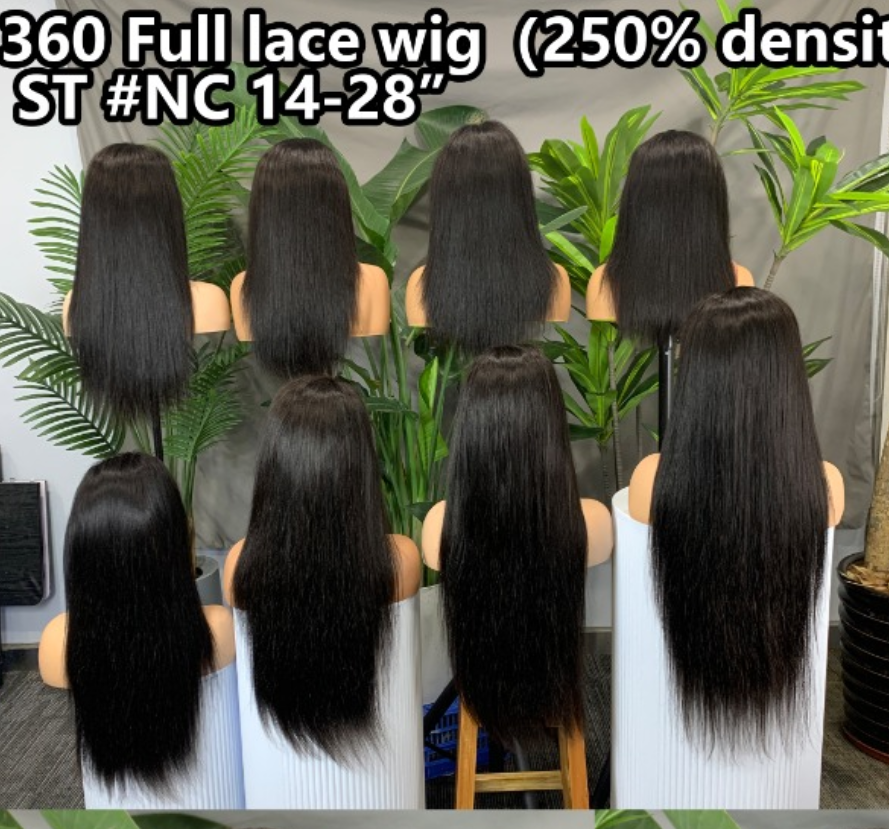In the bustling world of hair extensions and wigs, the choice of a human hair supplier can make or break a business. A reliable and high-quality supplier is not just a partner but a cornerstone of success in the hair industry. This guide delves into the critical aspects of selecting the right human hair supplier, ensuring that the information aligns with Google’s indexing criteria and meets the standards of official website content.
The Importance of a Quality Human Hair Supplier
The quality of the hair products offered by a supplier directly impacts the satisfaction of the end consumer:
- Product Quality: A quality supplier ensures that the hair is healthy, free from impurities, and processed to maintain its natural integrity.
- Consistency: Consistent quality across batches is crucial for building trust with customers and maintaining a reputable brand image.
- Ethical Sourcing: Ethically sourced hair is a growing concern among consumers, making it an essential consideration for suppliers.
Key Factors to Consider When Choosing a Human Hair Supplier
Several factors are pivotal when vetting potential human hair suppliers:
- Reputation: A supplier’s reputation in the industry can be a strong indicator of their reliability and product quality.
- Experience: Experience in the industry often equates to a deeper understanding of the market’s needs and advancements in hair processing techniques.
- Range of Products: A diverse range of products can cater to various customer preferences, ensuring that retailers can meet different market demands.
Quality Assurance: The Hallmark of a Top Supplier
Quality assurance is the hallmark of a top human hair supplier:
- Stringent Testing: Regular testing for quality parameters, such as texture, color, and strength, ensures that only the best products are shipped.
- Certifications: Certifications from recognized bodies can validate a supplier’s quality control measures.
- Customer Feedback: Monitoring customer feedback provides valuable insights into product performance and areas for improvement.
Ethical Sourcing: A Moral Imperative
Ethical sourcing is not just a trend but a moral imperative in the hair industry:
- Transparency: Suppliers should be transparent about their sourcing practices, ensuring that the hair is obtained through fair means.
- Regulatory Compliance: Compliance with local and international regulations is essential to ensure ethical sourcing.
- ** traceability**: traceable supply chains enable suppliers to track the origin of the hair, providing peace of mind for retailers and consumers.
The Role of a Supplier in Inventory Management
A human hair supplier plays a significant role in inventory management:
- Stock Availability: A reliable supplier maintains a sufficient stock level to meet demand without causing stockouts.
- Order Fulfillment: Timely order fulfillment is crucial for maintaining a smooth inventory flow and customer satisfaction.
- Flexibility: The ability to adjust order volumes based on demand fluctuations is a valuable trait in a supplier.
Customer Service: Building Long-Term Relationships
Exceptional customer service is key to building long-term relationships:
- Communication: Open lines of communication facilitate quick resolution of issues and the exchange of feedback.
- Support: A supplier that offers support and guidance can help retailers navigate the complexities of the hair market.
- After-Sales Service: A supplier’s commitment doesn’t end with the sale; after-sales service ensures customer satisfaction and repeat business.
Technological Integration: The Future of Hair Supply
Technological integration is shaping the future of the hair supply chain:
- Inventory Tracking: Advanced inventory tracking systems reduce errors and improve efficiency in stock management.
- E-commerce Platforms: Online ordering systems make it easier for retailers to manage their inventory and place orders.
- Data Analytics: Data analytics can provide valuable insights into market trends and consumer preferences.
Conclusion
Selecting the right human hair supplier is a decision that can significantly impact the success of a business in the hair industry. It is essential to consider factors such as reputation, experience, product range, quality assurance, ethical sourcing, inventory management, customer service, and technological integration. By choosing a supplier that excels in these areas, retailers can offer high-quality hair products, build a loyal customer base, and establish a strong brand presence in a competitive market. With the right partner, businesses can look forward to growth, innovation, and a prosperous future in the world of human hair products.




